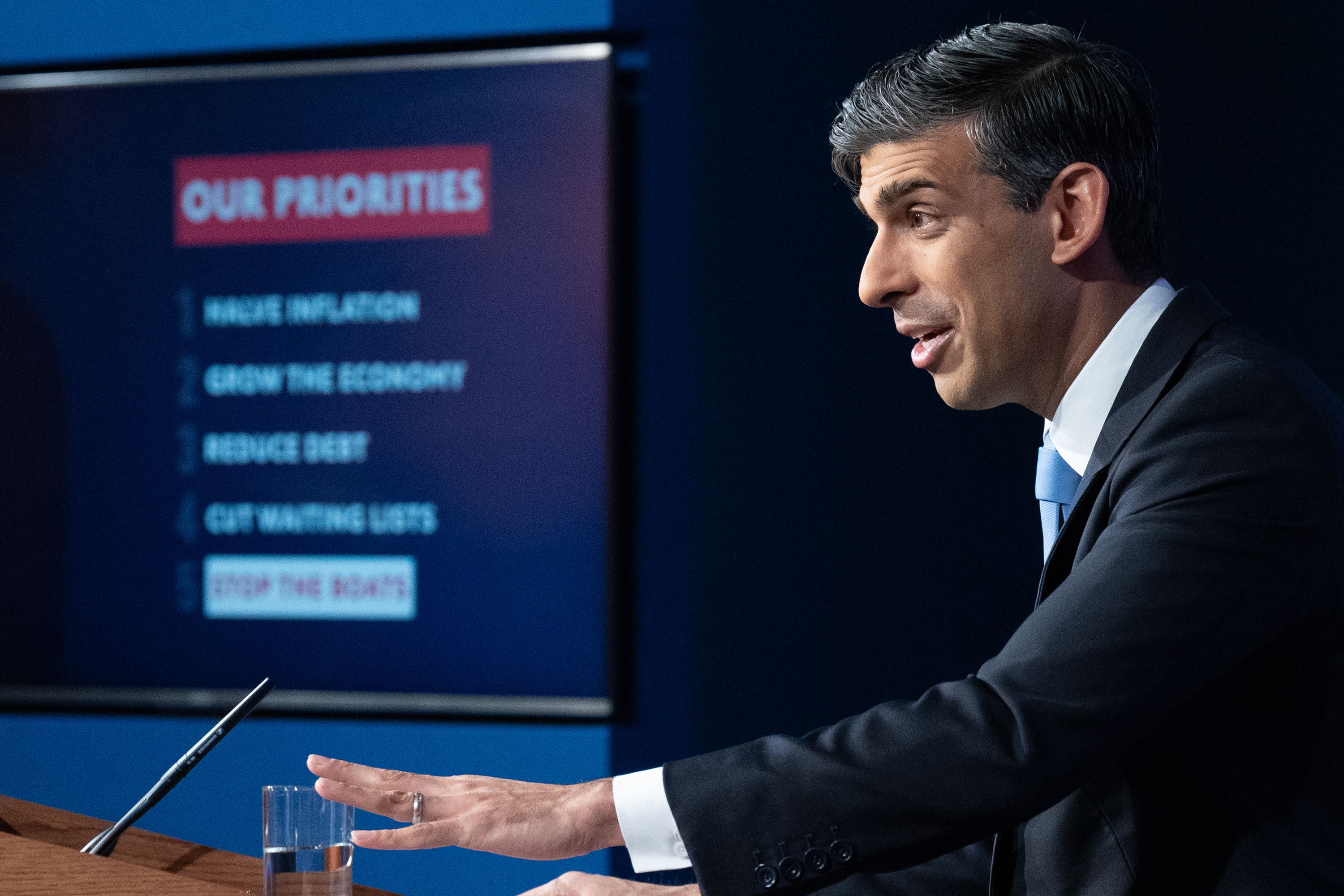Defiant peers inflict heavy first defeat against Rishi Sunak’s Rwanda Bill
The Prime Minister has previously warned the Lords against frustrating ‘the will of the people’.

Peers have inflicted their first defeat against Rishi Sunak’s proposed Rwanda asylum law putting the unelected Lords on a collision course with the Government.
The upper chamber backed by 274 votes to 172, majority 102, a move to ensure the draft legislation, aimed at clearing the way to send asylum seekers who cross the Channel in small boats on a one-way flight to Kigali, is fully compliant with the law.
The Prime Minister has previously warned the Lords against frustrating “the will of the people” by hampering the passage of his Safety of Rwanda (Asylum and Immigration) Bill, which has already been approved by MPs.
Ahead of the next election, Mr Sunak has made “stopping the boats” a key pledge of his leadership.
The heavy Government defeat sets the stage for an extended tussle between the Commons and Lords during “ping-pong”, where legislation is batted between the two Houses until agreement is reached.
The Government is challenging the right of international law to constrain our actions. And the point of international law is to stop governments going ahead with things that are wrong
The controversial draft legislation and a treaty with Rwanda are intended to prevent further legal challenges to the stalled deportation scheme after the Supreme Court ruled the plan was unlawful.
As well as compelling judges to regard the east African country as safe, it would also give ministers the power to ignore emergency injunctions.
Parliament’s Joint Committee on Human Rights has said the proposed Rwanda legislation was “fundamentally incompatible” with the UK’s human rights obligations and would flout international law.
Separately, the Equality and Human Rights Commission (EHRC) has warned the Bill risks the UK breaching its obligations under international law.
But Downing Street has said the Government remains committed to sending flights to Rwanda “in the spring”.
The Archbishop of Canterbury, the Most Rev Justin Welby, pointed out international human rights law had grown out of the horrors committed by Nazi Germany, where in 1933 a government that “had been legally and properly elected, passed horrific laws that did terrible things”.
He added: “We are not in any situation remotely like that, let’s be clear. The Government is not doing something on the scale of what we saw at that stage.
“But the Government is challenging the right of international law to constrain our actions. And the point of international law is to stop governments going ahead with things that are wrong.”
Tory peer Lord Tugendhat, whose nephew is security minister Tom Tugendhat, accused the Government of behaving like the ruling party in George Orwell’s dystopian novel 1984, in its move to legislate that Rwanda was safe.
He said: “If this Bill goes onto the statute book in its present form, Rwanda will be a safe country regardless of reality until the statute is repealed.”
But former Conservative Party leader Michael Howard said: “In resolving to decide this issue for itself, the Supreme Court was trespassing on the province of the executive and, if there is any breach of the principle of separation of powers in this matter, it is not the Government that is guilty, it is the Supreme Court.”
The Bill and the treaty do not overturn or disregard the Supreme Court’s decision, they act upon it
Lord Howard of Lympne added: “Accountability is at the heart of democracy. That is why the Government is fully entitled to bring forward this Bill and why much of the criticism which is directed at it for doing so is… fundamentally misconceived.”
In contrast, Tory former cabinet minister Ken Clarke said he hoped there would be a legal challenge to the legislation if it was passed.
Lord Clarke of Nottingham told peers: “I can’t recall a precedent in my time where a government of any complexion has produced a Bill which asserts facts, a matter of facts, facts to be fact.
“And then goes on to say that this should be regarded legally as a fact interminably until and unless the Bill is changed, and then goes on to say that no court should even consider any question of the facts being otherwise.”
Labour former shadow attorney general Baroness Chakrabarti said the call for the Bill to comply with the rule of law must be “completely incontrovertible for those like the Prime Minister, who now claim to be liberal patriots”.
Former Lord speaker and independent crossbencher Baroness D’Souza said: “This Bill subverts the rule of law, the key elements of which are abiding by international law, equality before the law, respect for fundamental human rights and guaranteeing access to the courts.”
Responding, senior government law officer Lord Stewart of Dirleton said: “The Bill and the treaty do not overturn or disregard the Supreme Court’s decision, they act upon it.
“The treaty ensures that people relocated to Rwanda are not at risk of being returned to a country where their life or freedom would be threatened.”
Bookmark popover
Removed from bookmarks